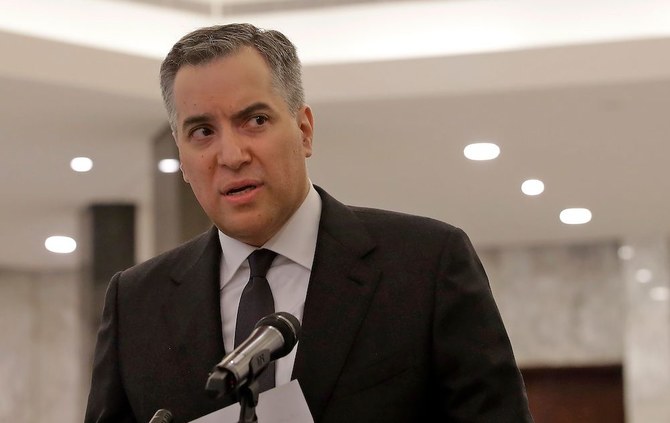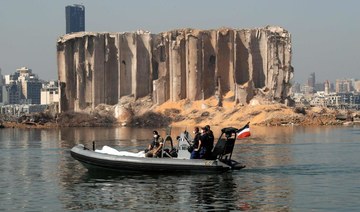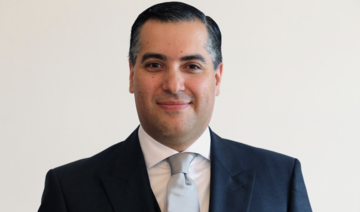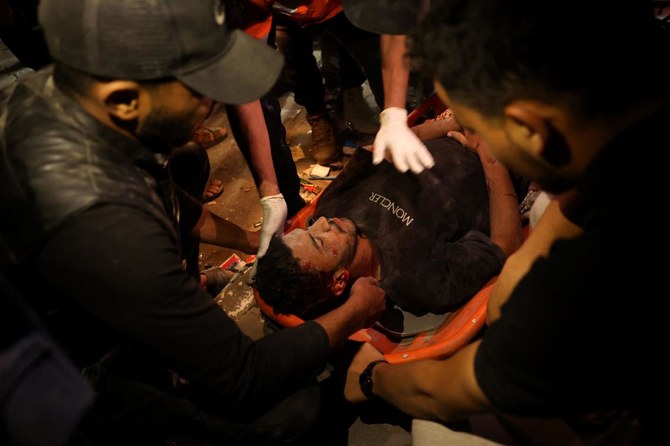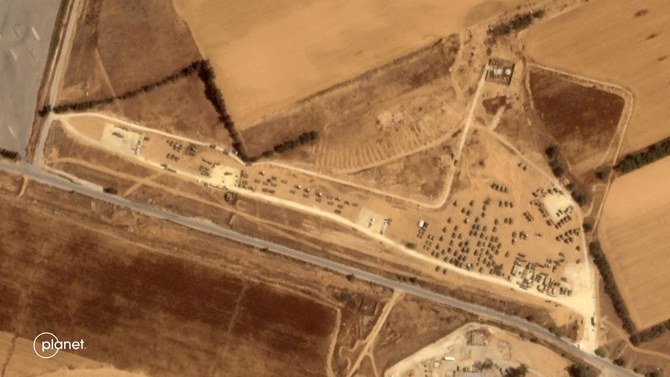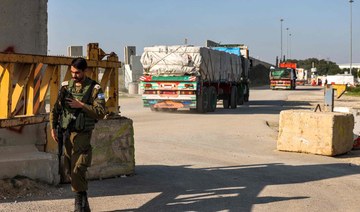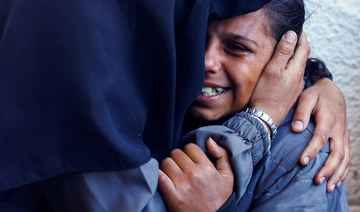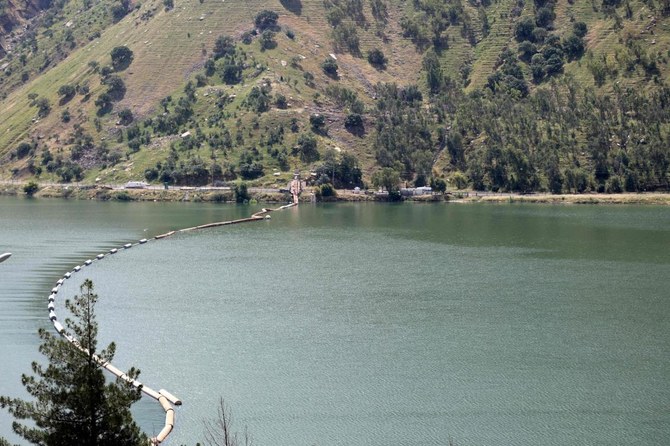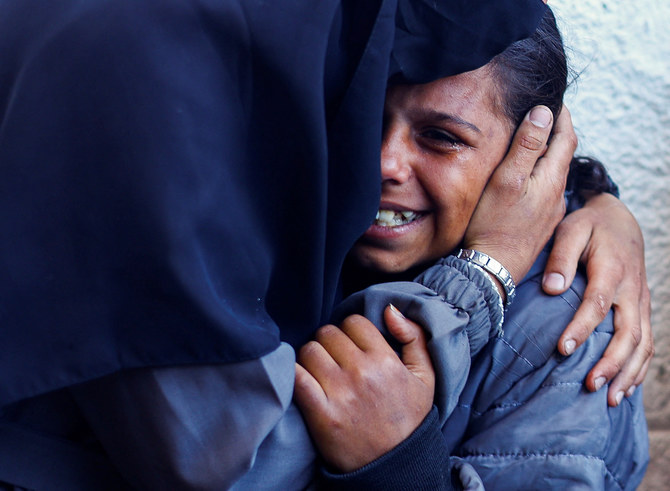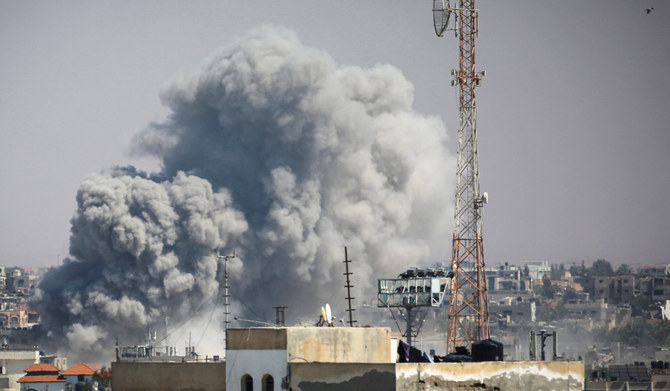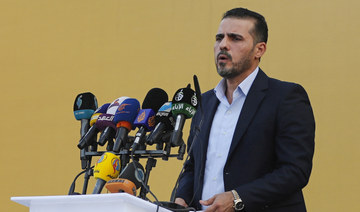BEIRUT: Lebanon's under-fire political leaders scrambled into action as French President Emmanuel Macron was expected Monday for a fresh visit aimed at pushing change in the crisis-hit country.
Macron was due to return less than a month after a landmark visit following the deadly Beirut port blast that traumatised Lebanon and renewed calls for a radical overhaul of the political system.
Parliamentary consultations at the presidential place on a new prime minister started on Monday morning, with most of the ruling elite's top barons apparently settling on a little-known diplomat, Lebanon's ambassador to Germany Mustapha Adib.
Already dismissed by the opposition as a product of Lebanon's reviled sectarian-based politics, Adib faces the daunting task of steering the state through one of the deepest crises of its troubled 100-year history.
The Beirut blast, one of the largest non-nuclear explosions in history, is widely blamed on government greed and incompetence and compounds the collapse of Lebanon's economy over the past few months.
A vast stockpile of ammonium nitrate that had languished at Beirut's port for years blew up on August 4, killing at least 188 people, wounding thousands and laying waste to large parts of the capital.
Macron demanded "deep change" when he visited Beirut on August 6 and warned then he would check on progress when he returns for the September 1 ceremony marking the centenary of Greater Lebanon.
President Michel Aoun and his political ally, Hezbollah leader Hassan Nasrallah, both expressed willingness in separate speeches Sunday to change the way Lebanon is governed.
The 85-year-old Aoun, a hate figure in the protest camp who regards him as deaf to calls for change, even urged the proclamation of a secular state.
Suspicion was rife however that Lebanon's long-serving heavyweights were only paying lip service to reform ahead of Macron's visit, expected to start around 1700 GMT.
"When the political class talks about the introduction of the civil state, it reminds me of the devil talking about virtue, it doesn't make sense," said political science professor Hilal Khashan.
"There is a big difference between raising a slogan and really putting it to work," said the academic from the American University of Beirut.
Adib's designation "will not usher in a new period in Lebanese history and I don't think it will put Lebanon on the road of genuine political development."
Adib emerged as a consensus option on Sunday.
The 48-year-old diplomat and close aide to former prime minister Najib Mikati received backing from the country's Sunni Muslim political heavyweights.
Adib still needs to be formally approved during Monday's consultations, but enough major factions endorsed him for his nomination to go through.
The only major dissenting voice within the political establishment came from the Lebanese Forces party which backed instead Nawaf Salam, an independent diplomat who also served as a judge at the International Court of Justice.
Under multi-confessional Lebanon's political system, the premier must be a Sunni, the presidency is reserved for a Maronite Christian and the post of parliamentary speaker goes to a Shiite.
A majority of lawmakers must decide on whom to name as premier before Aoun tasks the candidate with forming a new government, a process that can take months.
Lebanon's last government, headed by Hassan Diab, resigned after the massive explosion.
The deadly blast, blamed on decades of negligence and corruption by the country's ruling elite, revived calls at home and abroad for radical revamp of the state.
It also sparked demands for an international probe into the blast, which were however met with objections from political leaders.
Those who have taken to the streets in mass protests since October 17 against the politicians they deem corrupt and inept have already rejected any name that might emerge from the parliamentary consultations.
Despite promises of change, the process of forming the new government follows the same blueprint that has chronically mired Lebanon in political deadlock.
Social media networks abounded with posts questioning whether a government formed by Adib would be any more effective than Diab's, which was formed in January but failed to lift the country out of crisis.
Hassan Sinno, a member of the Massirat Watan opposition group, said the political class's new choice for the job of prime minister would not be given the same grace period Diab enjoyed.
"We won't give him the time, like some of us made the mistake of doing for Hassan Diab," he told AFP. "We can't afford it this time."
On the eve of Lebanon's sombre centenary, many citizens were planning to leave the country and asked whether Lebanon would live to be 101.
French Foreign Minister Jean-Yves Le Drian argued last week that only serious reforms could save Lebanon, warning that "the risk today is of Lebanon disappearing".
ho/jmm/fz



